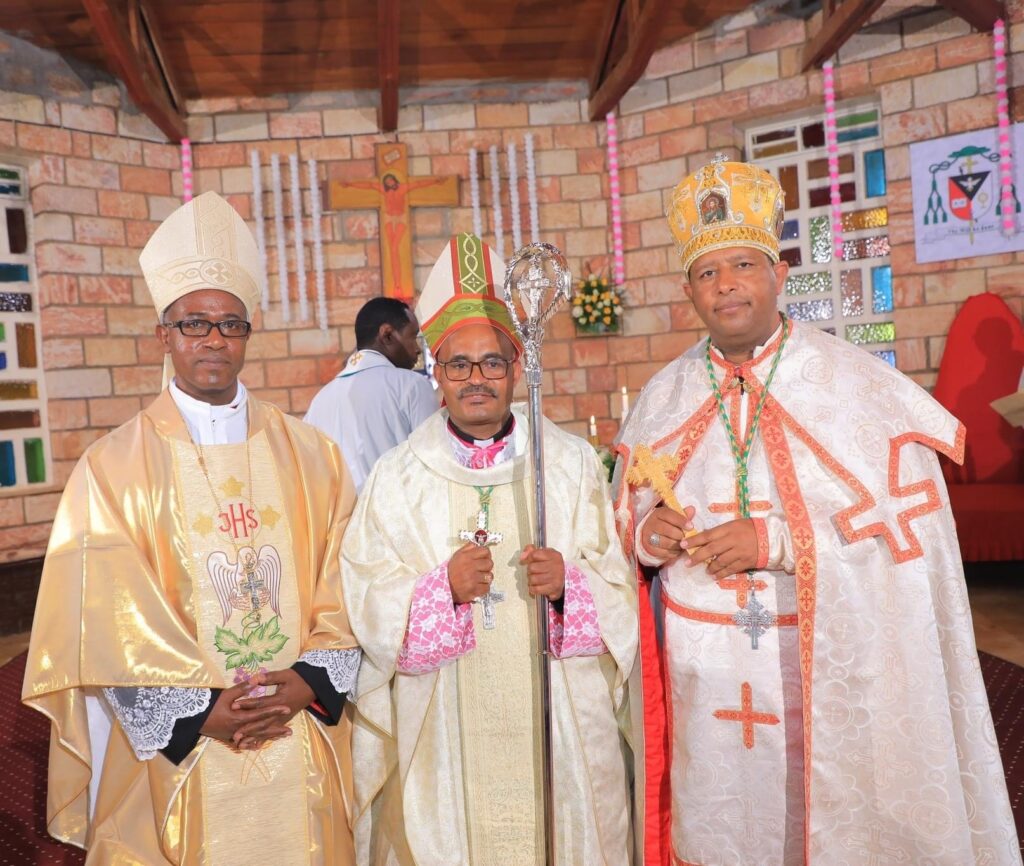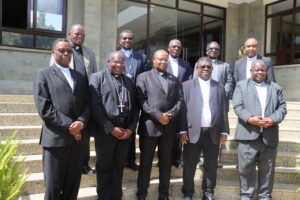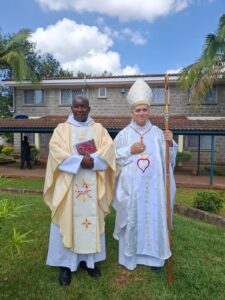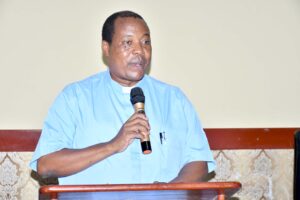ETHIOPIA: Episcopal Consecration of Abba Getahun of Ethiopia’s Nekemte Vicariate

By Bezawit Assefa
In a momentous continuation of blessings marking the Ethiopian New Year, the Ethiopian Catholic Church celebrated the episcopal consecration of Bishop Getahun, who was appointed the Bishop of the Vicariate of Nekemte.
The ordination occurred on September 22, 2024, at the Kidane Mihret Catholic Cathedral in Nekemte. The ceremony was started by a warm welcome ceremony then followed by a Holy Mass and consecration presided over by His Eminence Cardinal Abune Berhaneyesus, President of the Catholic Bishops’ Conference of Ethiopia. Among the attendees was the former Bishop Varghese Thottamkara, C.M., the current Bishop of Balasore, India, alongside various bishops, priests, special invitees, religious groups, families, and devoted faithful from across the country.
In his homily, the Berhaneyesus Cardinal Demerew Souraphiel emphasized the sacred duty of passing down the title of priesthood from generation to generation, a tradition empowered by the Holy Spirit received from Jesus Christ. He entrusted Abune Milkyas with the responsibility of leading this new ministry appointed by God, urging all Catholics to support their new shepherd with patience and prayer.
In 2024, Pope Francis made a historic decision by appointing three new bishops for the Ethiopian Catholic Church, fulfilling the long-held prayers and aspirations of the faithful in three dioceses. These significant appointments include Bishop Lukas for the Eparchy of Emdibir, Bishop Dejene for the Vicariate of Sodo, and Bishop Milkias for the Vicariate of Nekemte. This long-awaited development marks a monumental milestone for the Ethiopian Catholic Church, which had been earnestly seeking local leadership for its spiritual and pastoral mission. The events were attended by a significant number of faithful from across Ethiopia and neighboring countries, including bishops, priests, religious sisters, and laypeople from Eritrea, AMECEA (Association of Member Episcopal Conferences in Eastern Africa), and SECAM (Symposium of Episcopal Conferences of Africa and Madagascar). This gathering reflected the broader unity of the African Catholic Church and its role in global Catholicism.
The consecration ceremonies were not only deeply spiritual but also highly communal, celebrated with overwhelming joy and participation from all sectors of society, including local communities, youth groups, government officials, and representatives from various religious organizations. This large and diverse turnout demonstrated the strong bond between the Church and the Ethiopian people, as well as the important role the Church plays in both the spiritual and social life of the nation. The presence of ecumenical and government representatives also showcased the Catholic Church’s commitment to interfaith cooperation and dialogue, a key focus that the newly appointed bishops are expected to further develop and strengthen.
In light of Ethiopia’s current conflicts, social unrest, and growing humanitarian needs, the Catholic Church is seen as a pivotal player in the country’s ongoing efforts toward peacebuilding and reconciliation. The consecration of these three bishops comes at a time when the Church is called to collaborate more closely with the government and other religious bodies to address these pressing challenges. The promotion of peace, dialogue, and mutual understanding between communities will be a central mission for the new bishops as they work to heal divisions and foster a spirit of cooperation and unity.
One of the most memorable aspects of the celebrations was the incorporation of Ethiopian cultural traditions into the liturgy, reflecting the inculturation of the Catholic faith. Traditional music, attire, and rituals were harmoniously integrated into the ceremonies, enriching the spiritual atmosphere while showcasing the Church’s respect for Ethiopia’s diverse cultural heritage. This blending of Catholic and local customs symbolized the Church’s commitment to mutual coexistence and solidarity among different ethnic and religious communities in Ethiopia. The new bishops, with their deep understanding of local culture, will be well-positioned to continue this effort, ensuring that the Church remains relevant and rooted in the communities it serves.
The appointment and consecration of Bishop Lukas, Bishop Dejene, and Bishop Milkias are seen as pivotal moments for the Ethiopian Catholic Church. These new leaders are expected to play a critical role in advancing the Church’s mission of evangelization, social service, and interfaith dialogue, while also serving as beacons of hope and unity for their respective dioceses. As they begin their pastoral duties, the faithful eagerly look to these shepherds to guide their communities in faith, nurture spiritual growth, and strengthen the bonds between the Church and the broader society. This landmark event represents not only a new chapter for the dioceses but also a vital step forward for the continued development of the Catholic Church in Ethiopia.


